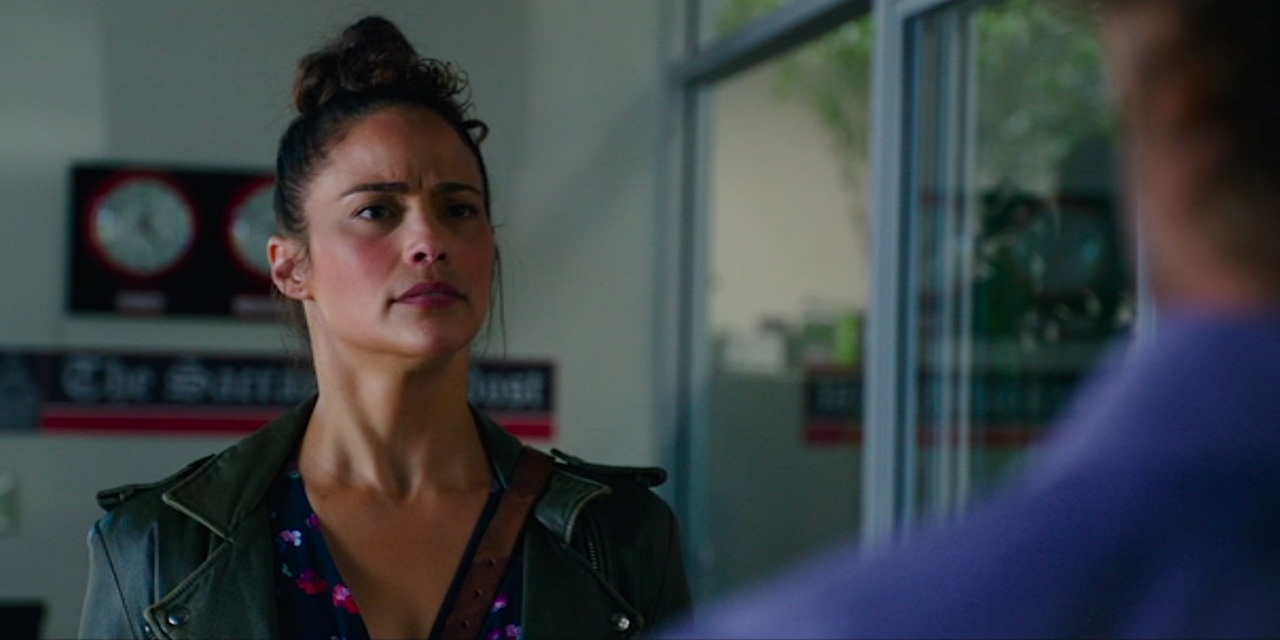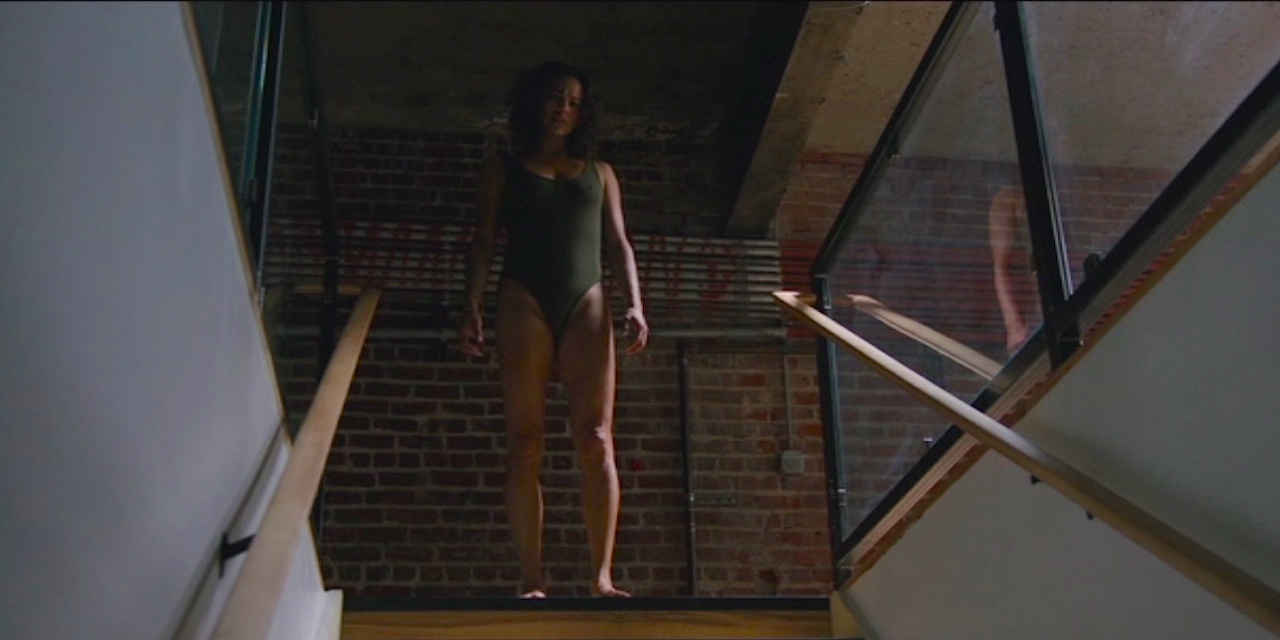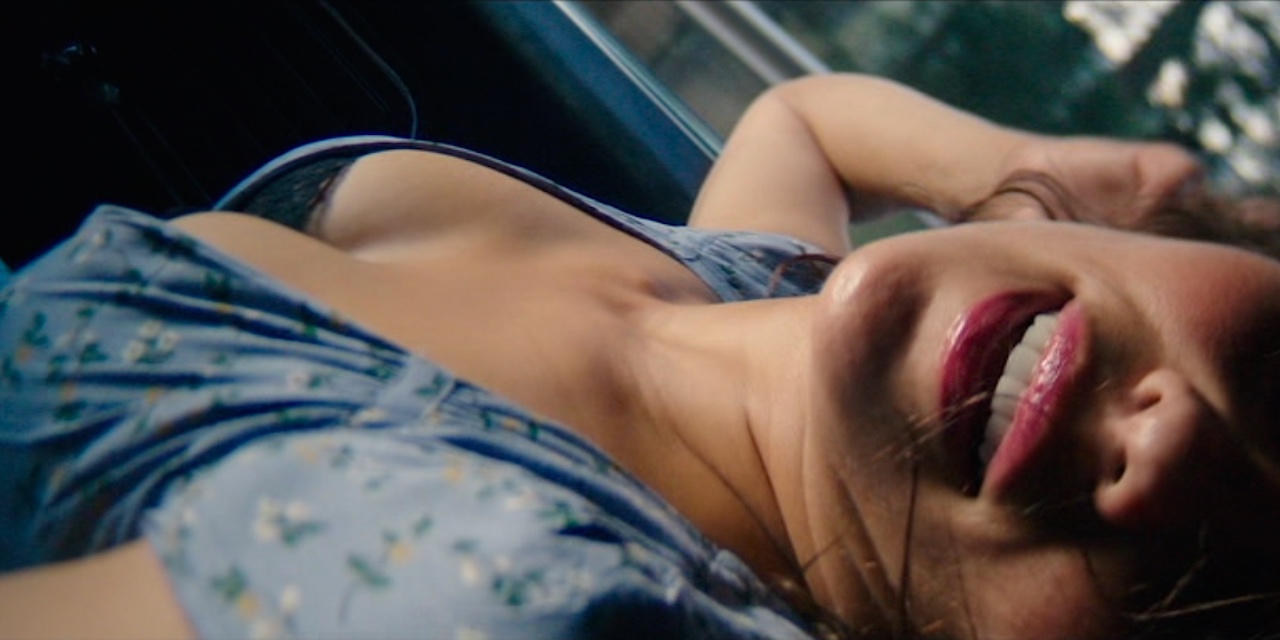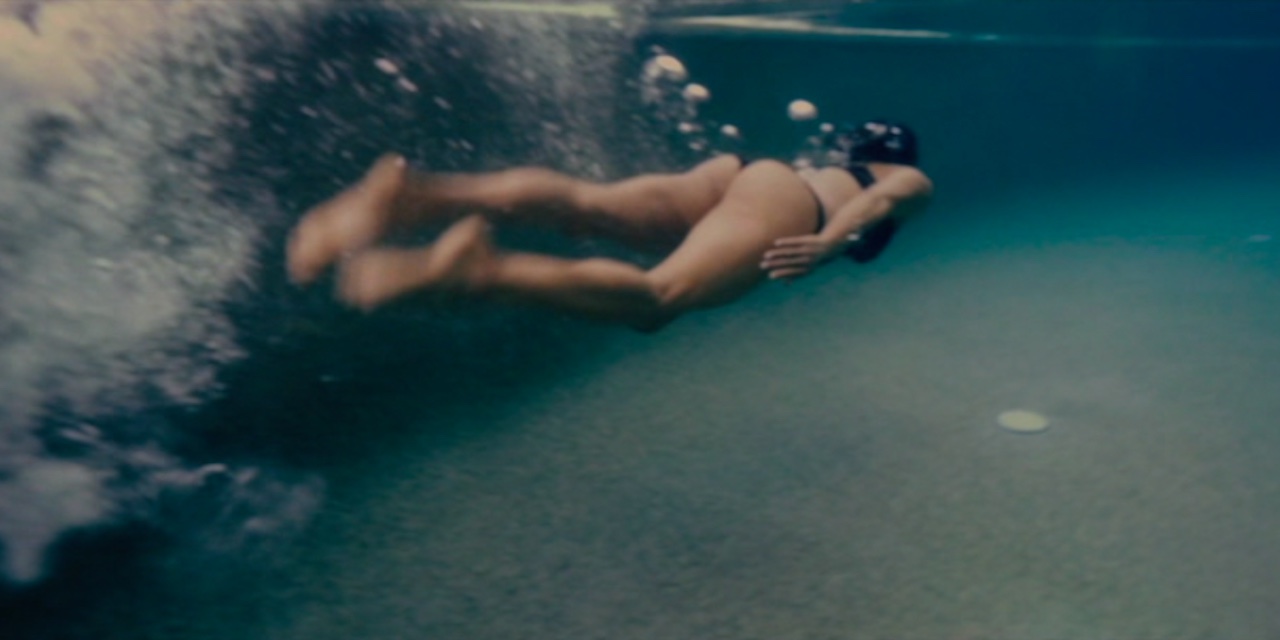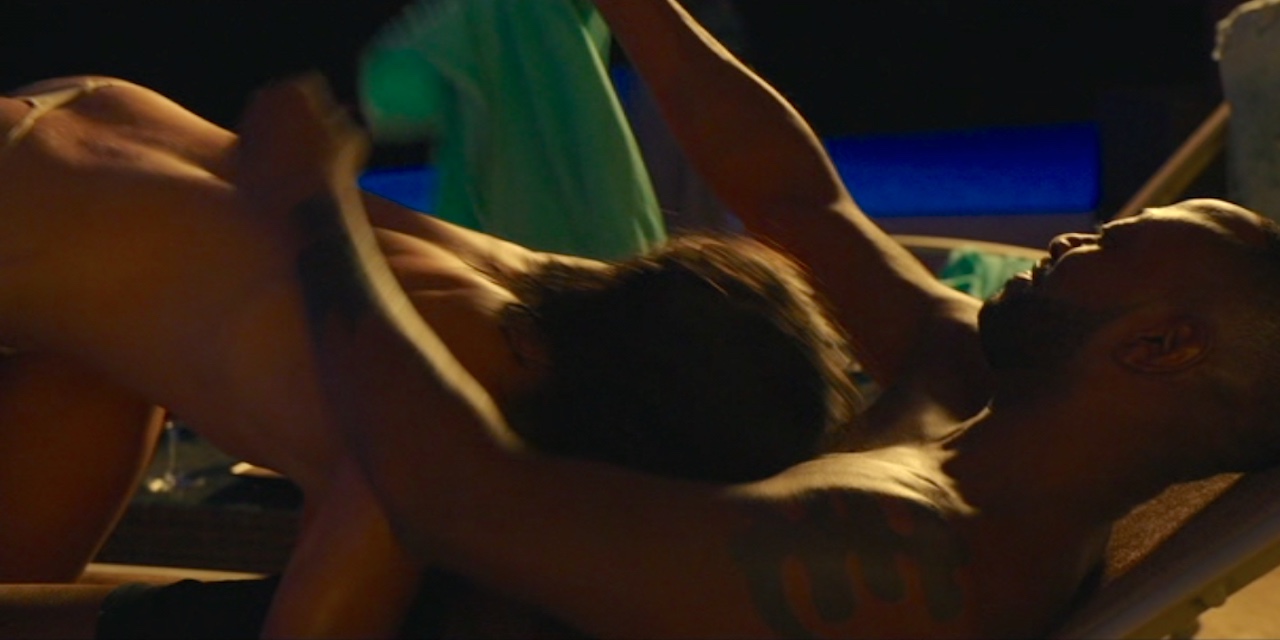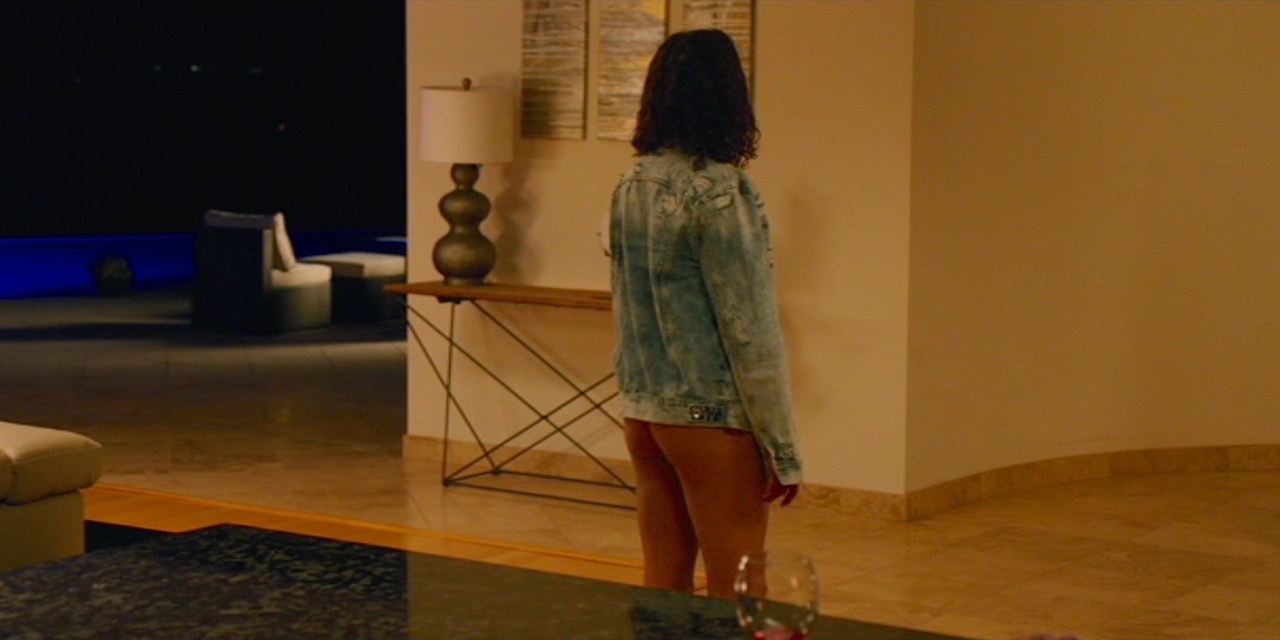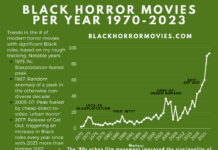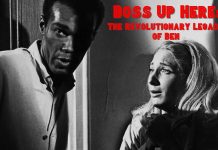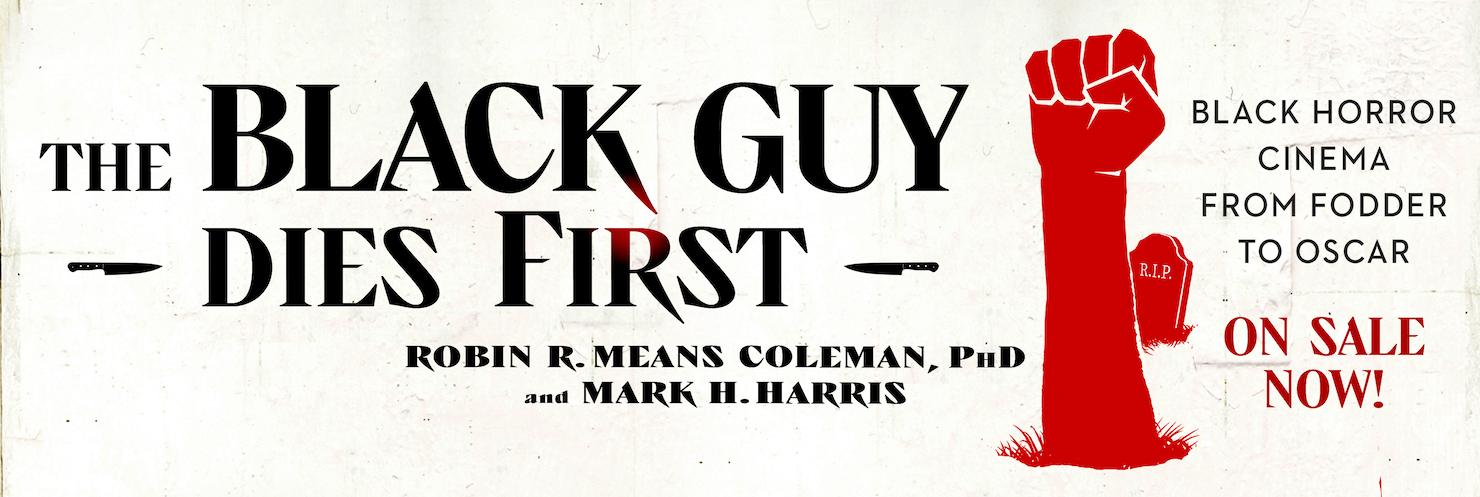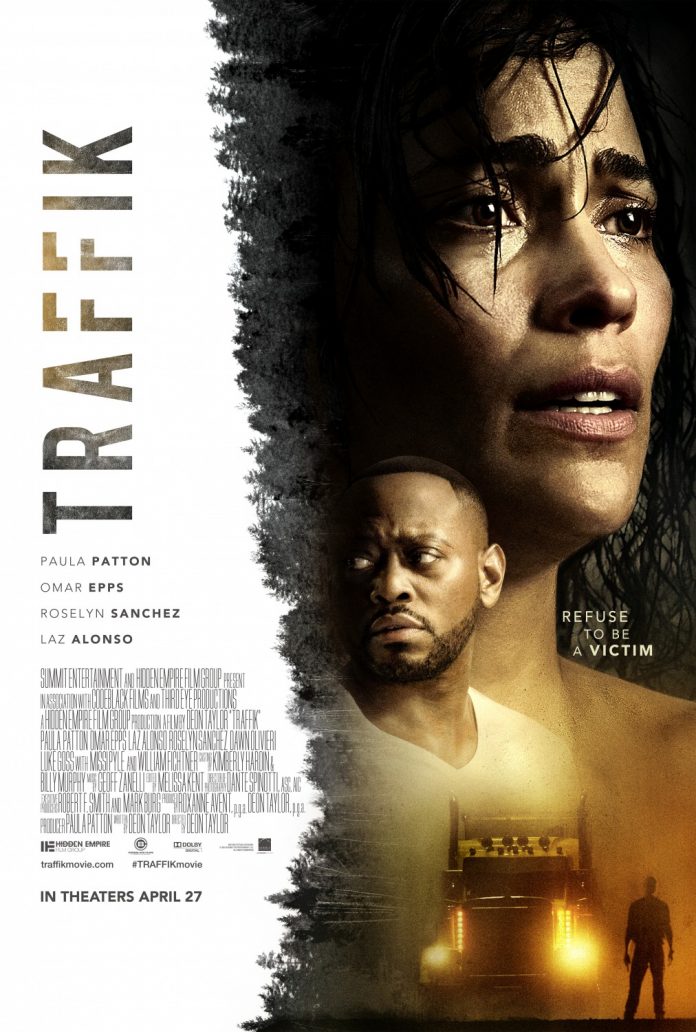Human trafficking is one of the fastest-growing criminal enterprises worldwide, one with a disturbingly low level of public awareness and an even lower rate of prosecution, so who better to raise public consciousness regarding this social epidemic than…the guy who brought us Meet the Blacks?
Deon Taylor has one of the most successful black filmmakers specializing in genre fare over the past decade, making a name for himself writing and directing horror movies like Nite Tales, Dead Tone and Chain Letter, which stand out as rare examples of fright films from a black director that don’t necessarily feature predominantly black casts.
With Meet the Blacks and Traffik, Taylor went a little more black and managed to arrange wide theatrical releases for both on more than 1,000 theaters (BoxOfficeMojo considers “wide” to be 600+ theaters.). The result was his biggest successes to date, with each raking in over $9 million at the box office. I applaud his achievements — although let’s just say I’m not a fan of Meet the Blacks. Thankfully, his other films are better…granted, that bar’s pretty low.
Paula Patton stars in Traffik as Brea, an idealistic Sacramento journalist who becomes disillusioned with her job after her boss gives her big story to a colleague. I think we’re supposed to side with her, but in truth, it’s naïve for her to think her boss should let her take months to turn what should be a timely exposé on a particular instance of local corruption into a think piece about corruption in society as a whole that delves way back into ancient Roman history for context.
On the bright side, it’s her birthday, so her boyfriend John (Omar Epps) decides to take her on a getaway to a cabin — er, mansion in the woods. Along the way, they stop at a gas station, where Brea has an odd run-in with a desperate-looking woman, while John is threatened by some seedy bikers, one of whom nearly runs them off the road afterward.
Getting over their near-death experience with surprising ease, the couple settles in for a romantic evening, only to be interrupted when their friends Darren (Laz Alonso) and Malia (Roselyn Sanchez) drop in for a visit. Even worse, the bikers track them down and lay siege to the house, demanding a phone that the weird gas station lady apparently dropped into Brea’s bag — a phone that contains the secrets of their criminal activities. Thus begins an evening of terror, as the four friends must fight for their lives against the sadistic biker gang determined to prevent the truth from being exposed.
It shouldn’t be too much of a reveal to say that Traffik deals with human trafficking. Taylor has stated that the story was inspired by reports of actual sex trafficking rings near where he lives, so it seems his heart is in the right place (The movie ends with statistics on trafficking in the US and worldwide.), but the message would’ve been stronger if the final product was A) better and B) focused more on the actual victims.
(To be clear, sex trafficking doesn’t have to be an elaborate, Taken-style ring; it can be just one-on-one forced prostitution by a pimp [the legal definition being “When an adult is coerced, forced or deceived into prostitution — or maintained in prostitution through one of these means after initially consenting”], but the term “trafficking” conjures images of a large, multinational slavery endeavor, which is much more cinematic, so that’s what’s typically shown in movies like this.)
Traffik is basically a home invasion/survival thriller with sex trafficking (or more precisely, fear of exposure of sex trafficking crimes) tacked on as a motive behind the attack. As a thriller, though, it’s rather thrill-less, lacking the horror elements of The Strangers and featuring rote action sequences that play out as predictably as the overall plot.
The trafficking victims are pushed into the background in favor of Patton’s character, who has the power to expose the ring. This isn’t inherently a bad thing, but for a film whose purpose is to call attention to the exploitation of women’s bodies, it sure spends a lot of time exploiting Patton’s body. It’s littered with cheesecake shots of her in lingerie, swimsuits, topless, bottomless, whatever, and for the entire duration of her fleeing the bad guys, she’s running around bra-less in a shoulderless croptop that seems primed for a wardrobe malfunction at any point. And the camera is always there to capture it in egregiously unsubtle fashion.
Patton was a producer on the film, so she no doubt had some say in how her character is portrayed. I don’t know if she was oblivious to it all or if she just needed some validation of her sex appeal (Several scenes feature men ogling her and commenting on how beautiful she is.), but it all feels pretty tone deaf. Adding to the disconnect is the fact that most of the trafficking victims shown are white. One is Asian, and there might be a Latina, but for a movie written, directed by, produced by and starring black folks, you’d think they might want to call to light the fact that black women are by far the most likely to be victims of sex trafficking in the US (40% of victims are black versus 25% each for white and Latina). The film’s decision to play the anti-lynching song “Strange Fruit” while showing these non-black victims is all the more head-scratching.
What Traffik has going for it, though, is solid production value (typical of Taylor’s films) and the fact that Taylor & Co. somehow lured Oscar-nominated cinematographer Dante Spinotti (Heat, L.A. Confidential, The Insider, Ant-Man and the Wasp) to add a lush look. The cast is also strong, full of veteran performers — including, outside of the four POC protagonists, William Fichtner as Brea’s boss, Missi Pyle as the local sheriff and Luke Goss as the head of the biker gang. All perform as well as expected, although Patton’s pained, disoriented facial expressions and perpetually flushed cheeks make her seem borderline drunk. But never mind that; look at how hot she is! (Or so they say.)
For a film with such a sense of social consciousness, Traffik comes off as a by-the-numbers action thriller that throws in a misguided “the more you know” message after the fact.
